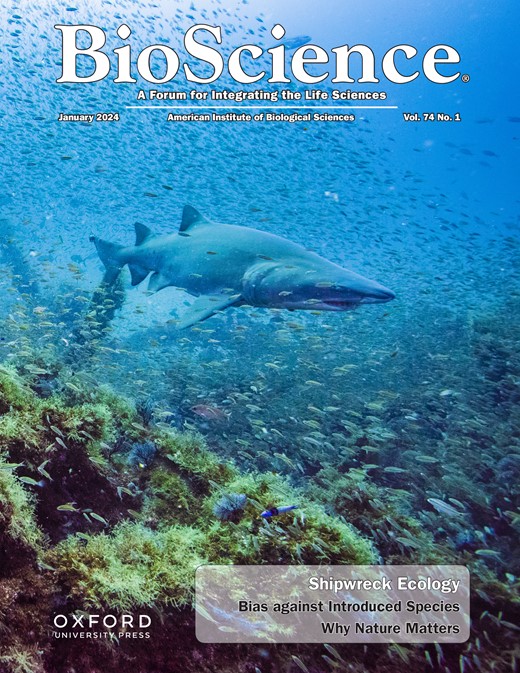The panzootic potential of SARS-CoV-2
IF 7.6
1区 生物学
Q1 BIOLOGY
引用次数: 0
Abstract
Each year, SARS-CoV-2 is infecting an increasingly unprecedented number of species. In the present article, we combine mammalian phylogeny with the genetic characteristics of isolates found in mammals to elaborate on the host-range potential of SARS-CoV-2. Infections in nonhuman mammals mirror those of contemporary viral strains circulating in humans, although, in certain species, extensive viral circulation has led to unique genetic signatures. As in other recent studies, we found that the conservation of the ACE2 receptor cannot be considered the sole major determinant of susceptibility. However, we are able to identify major clades and families as candidates for increased surveillance. On the basis of our findings, we argue that the use of the term panzootic could be a more appropriate term than pandemic to describe the ongoing scenario. This term better captures the magnitude of the SARS-CoV-2 host range and would hopefully inspire inclusive policy actions, including systematic screenings, that could better support the management of this worldwide event.SARS-CoV-2 的泛祖潜能
每年,SARS-CoV-2 感染的物种数量越来越多,这是前所未有的。在本文中,我们结合哺乳动物的系统发育和在哺乳动物中发现的分离株的遗传特征,阐述了 SARS-CoV-2 的宿主范围潜力。在非人类哺乳动物中的感染与在人类中流行的当代病毒株如出一辙,尽管在某些物种中,病毒的广泛传播导致了独特的遗传特征。与最近的其他研究一样,我们发现 ACE2 受体的保留不能被视为易感性的唯一主要决定因素。不过,我们能够确定主要的支系和家族,作为加强监控的候选者。根据我们的研究结果,我们认为使用泛流行一词来描述目前的情况可能比大流行更合适。这一术语更好地捕捉到了 SARS-CoV-2 宿主范围的规模,并有望激发包括系统筛查在内的包容性政策行动,从而更好地支持对这一世界性事件的管理。
本文章由计算机程序翻译,如有差异,请以英文原文为准。
求助全文
约1分钟内获得全文
求助全文
来源期刊

BioScience
生物-生物学
CiteScore
14.10
自引率
2.00%
发文量
109
审稿时长
3 months
期刊介绍:
BioScience is a monthly journal that has been in publication since 1964. It provides readers with authoritative and current overviews of biological research. The journal is peer-reviewed and heavily cited, making it a reliable source for researchers, educators, and students. In addition to research articles, BioScience also covers topics such as biology education, public policy, history, and the fundamental principles of the biological sciences. This makes the content accessible to a wide range of readers. The journal includes professionally written feature articles that explore the latest advancements in biology. It also features discussions on professional issues, book reviews, news about the American Institute of Biological Sciences (AIBS), and columns on policy (Washington Watch) and education (Eye on Education).
 求助内容:
求助内容: 应助结果提醒方式:
应助结果提醒方式:


